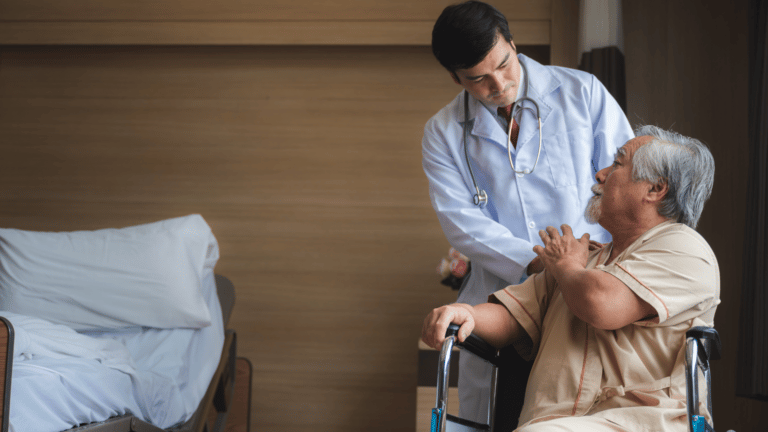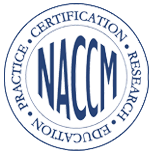Skin Cancer Prevention: The Importance of Sun Protection for Seniors
As we age, our skin becomes thinner and less able to protect us from harmful ultraviolet (UV) rays. That’s why without proper protection from the sun’s UV rays, seniors can easily develop skin cancers such as basal cell carcinoma or squamous cell carcinoma.
Since May is Skin Cancer Awareness Month, it’s the perfect time to remind people of all ages of the importance of taking precautions against sun damage. It’s especially important for seniors to take steps now to protect their skin before it’s too late.
The Link Between Sun Exposure and Skin Cancer
Sun exposure is one of the primary causes of skin cancer. When skin is exposed to ultraviolet (UV) radiation from the sun, it can damage the DNA in skin cells, leading to mutations that can eventually lead to cancer.
This is particularly true for seniors, who may have spent more time in the sun over the course of their lifetime and may have skin that is more susceptible to damage. In fact, seniors over the age of 65 are three times more likely to develop one of the two most common types of skin cancer—basal cell carcinoma and squamous cell carcinoma.
Exposure to the sun’s UV rays can also cause other forms of skin damage, including wrinkles, age spots, and discoloration. Seniors are especially vulnerable to these types of sun-related damage, as they often have thinner skin that is more sensitive and prone to burning or drying out. For these reasons, it’s crucial for seniors to take measures to protect their skin.
Sun Protection Tips for Seniors
For seniors, sun protection should be an especially high priority. Because our skin naturally thins as we age, exposing ourselves to long periods of unprotected sunlight can result in serious health issues down the road. It’s essential for seniors to take steps to protect their skin—such as using sunscreen, wearing a hat and long-sleeved clothing when outdoors, and avoiding peak hours of sunlight.
Let’s take a closer look at the ways seniors can protect themselves from sun damage:
Wearing Protective Clothing
One of the easiest ways for seniors to protect their skin is by wearing protective clothing. Wide-brimmed hats, long-sleeved shirts and pants, and sunglasses can all provide much-needed protection against sun exposure. When outdoors, seniors should also make sure to wear light-colored clothes–darker colors absorb more heat and can make the skin even more vulnerable to sun damage.
For added protection, seniors can also purchase clothing that has been treated with UV-protective chemicals, such as SunGuard or Coolibar. These garments are designed to block out harmful UV rays, making them ideal for people who spend a lot of time outdoors.
Using Sunscreen Correctly
Sunscreen is also essential for sun protection, but it’s important to ensure it is used correctly. Seniors should always use sunscreen with an SPF of at least 30, and they should apply it liberally to all exposed areas of skin 30 minutes before going outdoors. Sunscreen should be reapplied every two hours or after swimming, sweating, or toweling off.
When choosing a sunscreen, seniors should look for products labeled “broad-spectrum,” as this indicates that they protect against both UVA and UVB rays. It’s also important to make sure the product has not expired.
Paying Attention to the Time
Another way to reduce sun exposure is by paying attention to the time of day. The sun’s UV rays are strongest between 10:00 am and 4:00 pm, so it’s best for seniors to avoid spending extended periods in direct sunlight during this time. If they must go outside during these hours, then they should cover up as much as possible and use sunscreen.
Preventing Vitamin D Deficiency
While it’s important for seniors to protect their skin from the sun to prevent skin cancer, it’s also important to make sure they are getting enough vitamin D, which is essential for maintaining healthy bones and muscles.
One way to prevent vitamin D deficiency while still protecting the skin from the sun is to get vitamin D from dietary sources or supplements. Foods high in vitamin D include fatty fish, egg yolks, and fortified dairy products. Vitamin D supplements are also widely available and can be a convenient way to ensure adequate intake.
The Importance of Regular Skin Checks
In addition to protecting the skin from sun damage, it’s also vital for seniors to get regular skin checks. Skin cancer can often be cured if caught early enough; however, if left untreated, it can spread quickly and become life-threatening.
Seniors or their caregivers should aim to conduct a skin check at least once a month, looking for any new or changing moles, spots, or other skin abnormalities. They should pay particular attention to areas frequently exposed to the sun, such as the face, neck, and arms, as well as less visible areas, such as the back and scalp. If any suspicious spots are found, seniors should seek medical attention promptly.
In addition, the Skin Cancer Foundation recommends a skin check with a dermatologist every six months for people over 65. During a skin check, a dermatologist can examine the skin more thoroughly and may recommend a biopsy if any suspicious spots are found.
How a Care Manager Can Help
Caring for seniors requires attention to various health and wellness factors, including sun protection and regular skin checks to prevent skin cancer. However, managing these aspects of care can be challenging, especially for family members with limited time or resources.
That’s where a care manager can help. A care manager can work with seniors and their families to develop a comprehensive care plan that includes strategies for sun protection and regular skin checks. They can also assist with implementing these strategies, such as arranging for transportation to medical appointments or helping to select appropriate sunscreen and protective clothing.
At Reflections Management and Care, our team of professional care managers has the knowledge and expertise to help seniors stay safe in the sun. To learn more about how we can help you and your loved ones, please contact us today!














